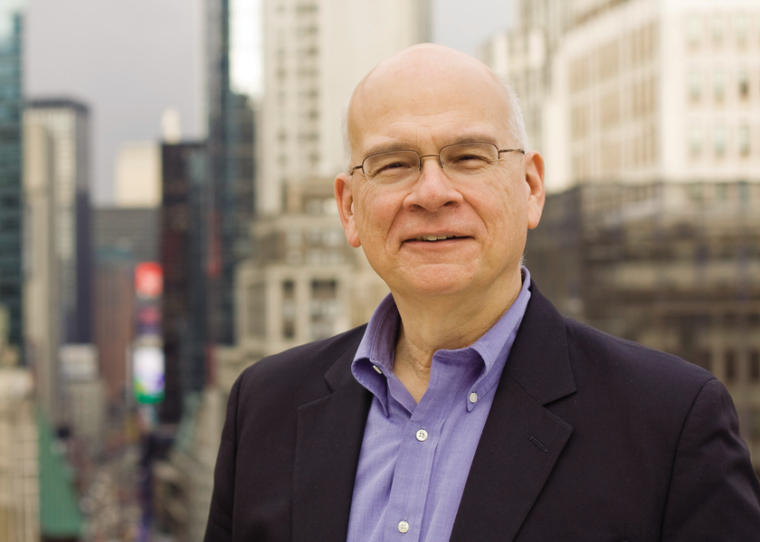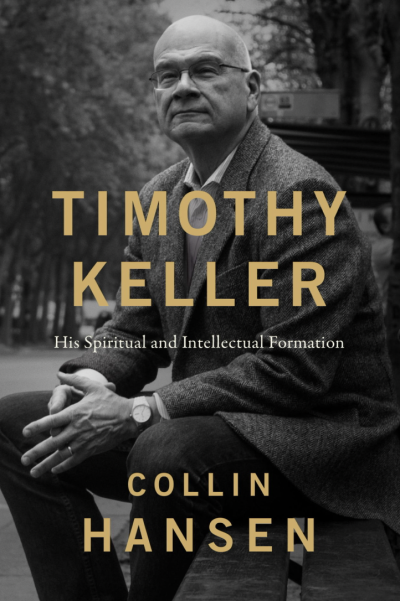Tim Keller's spiritual formation, unlikely journey to one of today's most influential pastors shared in new book

When writing a book about Tim Keller, one of the most influential pastors of the last several decades, Collin Hansen knew one thing for sure: Keller isn’t interested in publicity, and frankly, doesn’t like to talk about himself.
“I knew that Tim was not ever going to be interested in a book about himself,” Hansen, a professor who also serves as vice president of content and editor-in-chief for The Gospel Coalition, told The Christian Post.
But though reticent to talk about himself, Keller likes to talk — about what he’s learning, what he’s reading and what he’s observing.
“So in telling Tim’s story, the way he talks not about himself, but about other people, is the angle that we decided to take,” Hansen said. “You get a book about Tim Keller, and what he loves about Jonathan Edwards; you get a book about Tim Keller, and he talks about C.S. Lewis, about the difference that [his wife] Kathy Keller made in his life. … It’s a book about Tim Keller, but really, it’s an opportunity for us to think and reflect and to give thanks for a lot of other people as well.”
Hansen’s latest book, Timothy Keller: His Spiritual and Intellectual Formation, draws from Keller’s personal notes and sermons to give readers an in-depth look at some of his greatest influences, from the woman who taught him how to read the Bible to the philosopher who taught him to think biblically about society’s biggest issues. It examines some of the events that impacted Keller’s life and ministry, from his brother dying of AIDS in the 1990s to being in Manhattan on 9/11.
The book is, according to Hansen, is “the story of the people, the books, the lectures and ultimately, the God who formed and shaped his life.”
An overwhelming theme throughout Hansen’s book is Keller’s deep humility and countercultural approach to ministry and evangelism. The author, who has considered Keller a close friend since 2007, paints a picture of a man who “wasn’t a cool kid around the table” or even considered by those around him “most likely to succeed.”
“At some level, that humility comes from a self-perception that he’s not that special, which kind of leads into the overwhelming wonder of grace that he’s never gotten over — the love that God has shown him, and he loves to share that with others as well,” he said.
Hansen traces Keller’s early years in Pennsylvania to his time as an associate practical theology professor at Westminster Theological Seminary and meteoric rise as one of New York City’s foremost pastors and urban church planters.
Much of Keller’s knack for explaining complicated subjects to a wide variety of people — his books have sold more than 3 million copies — stems from his extensive and varied ministry experience, Hansen said. Keller led West Hopewell Presbyterian Church, in rural Virginia, for nine years, before planting a church in one of the country’s most secular cities.
And when Keller planted Redeemer Church in 1989, Hansen writes that he “deliberately avoided publicizing the church, especially to other Christians.”
“There weren’t a lot of Christians in Manhattan that he could have gathered, and the effort was really to try to reach non-Christians and the typical methods of promotion and publicity, even going back to say, Billy Graham’s landmark evangelistic event in 1957 in New York, have often been about gathering other Christians. So, this work was really about reaching people who were not in the church and didn’t have a connection. The thought was the publicity would simply turn them off,” he said.
Throughout his ministry, Keller has championed planting churches in urban areas through Redeemer City to City and popularized the term “Gospel-centered churches;” the idea “that our churches need to stay focused on the Gospel, that the Gospel applies to all of life, including our work and how we treat the poor and how we love our neighbors, all those sorts of things, and then doing it in an urban context.”
“If there’s a sense in which Evangelical Christians are eager to participate in the work of Gospel-centered church planting, especially in cities, that’s Tim Keller more than anybody else,” he said.

Keller was diagnosed with stage 4 pancreatic cancer in May 2020 and is undergoing immunotherapy, which he previously told CP has kept the disease “at bay.” Since his diagnosis, Keller has continued to write and teach, sharing biblical wisdom surrounding topics including race, social relationships, systemic injustice and sexuality.
His latest book, Forgive, examines why society is hesitant to forgive and outlines why forgiveness is an essential part of the Christian life. And he has, according to Hansen, “plenty of other things he wants to write.”
“We’ve been praying all along for a good another decade of energetic ministry,” Hansen said.
“It seems as though the spiritual work that God has done in his life through the cancer has been a kind of personal revival of sorts,” he added, echoing Keller’s own recent observations about his personal prayer life.
“So there’s sort of a combination of hopefulness and eagerness and planning for another decade, Lord willing, ahead, but at the same time a sense that nothing is promised. And in that sense, Tim’s just getting a concentrated dose of really all of our situations, no different for any of us, because as Jesus tells us, we’re not promised tomorrow, either,” he said.
Hansen expressed hope that through his book, readers will grow in their faith and see the core of the Gospel; Jesus Christ’s death and resurrection — and then from there, examine Keller’s work on social criticism and the deep structures of society and how the Gospel applies to all areas of life.
“We’re hoping that through this book, people will come to a greater worship of God, ultimately,” he said.
Timothy Keller: His Spiritual and Intellectual Formationis available now.
Originally published on The Christian Post.







